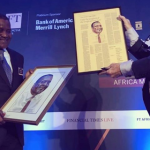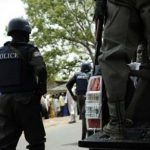
Cornelius Tay until last June was the Nigerian Mission President at The Church of Jesus Christ of Latter Day Saints, the almost two century old church with root in America. Tay a Ghanaian who enjoys dual nationalities of some sorts, with Brazilian roots has seen it all in the corporate world of business, humanitarian service, etal. In this interview with Ibrahim Apekhade Yusuf, the renowned advertising guru, turnaround expert and entrepreneur attempts a horse of recall sharing intimate experiences of his career trajectory, leadership at different levels in the last 50 years, including his stewardship at the church vis-à-vis his views on the polity and vision for Nigeria, the land of his birth. Excerpts:
Could you share some of the challenges you faced during different sojourns both as a private and public servant and how you survived through it all?
As a leader and this goes not only for me, every leader must know that leadership is about carrying your own cross. There is a cross to carry in leadership and those who think that leadership is to come and enjoy the power and all the things is so easy, they will not acquire the depth of competency that I was referring to. I’m sorry to say that is the more common leadership in Nigeria; leadership where leaders are not ready to recognise the cross talk less of carrying it. For me, leadership is about coming into something and knowing from the day one that there is a huge cross to carry here and I had to carry it. And hopefully, some people will come and help me to carry my cross. This is almost like talking about the saviour in his last days and that word, Pontius Pilate comes to mind, when he was being nailed on the cross. He carried his cross. A leader must carry his cross. So from one level to the other, you have to carry your cross. As a young boy in Igbobi College, which was recognised in the 60s, 70s, and the 80s as well as one of the very best secondary schools in Nigeria, I was a House Captain. The House was called Towson House. One of the products of that House is the Vice President, Prof. Yemi Osinbajo. He was in my house. As a captain of Towson House, we had challenges. It was a time to demonstrate your ability to be a man of integrity because if your colleagues or even classmates are not doing what is right, you as the class captain has responsibility to stand up for what is right, no matter whose ox is gored. Leaders must be able to demonstrate by their character the true essence of integrity. It’s a big cross. You have to be ready to make sacrifices to be able to accomplish the goal. And what is the goal? The goal is to maintain order across all classes in the school, from the junior to the senior ones.
Can you recollect some of the interesting moment in your career, especially in advertising?
When I went into the advertising industry, I had my own fair share of challenges as well. You see, advertising companies are like little stars, twinkle, twinkle little stars; they shine, they bring about improvement in things. They make brands popular, make companies’ revenue increase and enlarge, and everybody is happy and you create new products in the process and all of that. It was a very interesting career. But when you decide to go and set up your own, you have to really, really be careful because financing in that industry is hard to come by. That’s why today, hardly will you find any advertising company in the Nigerian Stock Exchange (NSE). In my own company, we experimented with it as private placement only very few people were willing. So the financial ability to set up a very professional advertising company was a huge cross to carry and we still did. We grew and ploughed back and we commanded the respect and attention of some of the world’s major companies were ready to appoint us and gave us businesses because they were interested in our brainpower. Leaders must be ready to give all, in order to succeed and be disciplined in managing the resources that you have so that they will keep on delivering top brand service in terms of quality. So every stage of leadership has its challenges.
You presided over The Church of Jesus Christ of Latter Day Saints as Nigerian Mission President until June. Could you provide some insights on what the role entails and what prepared you for that assignment?
Yes, my missionary work and role as the president The Church of Jesus Christ of Latter Day Saints ended on the June 30th. It was designed for three years as a voluntary missionary work. And after three years I’m required to go back into normal life. Having said that, I want to tell you about the capacity to lead because since the 60s, I would say I have had the privilege and opportunity of leading and operating in leadership roles all of those years. If we take from 1969 for example, all the way to this time, in every way I have been involved with one form of leadership or the other, either as a leader in my secondary school days or in the university days, or with the youths of Africa and then on to my career, to management, ecclesiastical work.
At one stage or the other in my entire life in the last 50 years, I have had a special privilege of operating in leadership capacity. And so I have had responsibilities for people, and to accomplishing common vision and goals, for various levels of categories of people. So as I thought of my meeting today, I felt that I could make an important statement which is that the capacity to lead is a spiritual gift. It is not acquired by inordinate ambition or selfish motives. It is made possible by the divine competence of holiness, and the availability, as well as the passion of that person to achieve goals through self-motivation, and the motivation of others. I hold the position that this model of leadership is less about self, but more about others. It aims to bring out the very best potentials in things and people in a natural way. Spirituality drives this type of leadership capacity to the extent that it becomes sustainable and therefore keeps on bringing in forth good in cycles. So at the end of these three years’ service as Mission President in the Church of Jesus Christ of Latter Day Saints, I have found that I have experienced a most remarkable leadership period because now from leading organisations, and students and youths and companies I have had now to spend time to lead a large number of missionary force, both men and women who have committed themselves and giving years to consecrate their service in the advancement of the gospel of Jesus Christ and to see how we can achieve the common purpose of making people experience the life of Christ. The result of that on me as an individual is a major transformation and perhaps the most exciting experience of all because I see myself as working for God.
So I look at our nation Nigeria and I ask myself a question can we be a better nation? Because by virtue of my assignment itself, the question I ask when I meet with people who desire to know more about the gospel of Jesus Christ is very simple: can knowing the gospel of Jesus Christ make you a better, happier person? When they say yes, then, we begin to have a common ground to talk and it’s for me to explain to them what that gospel is and what the doctrine of Jesus Christ is and how this gospel brings happiness to the world. So, it’s the same way I look at our nation and I ask, can we be a better a nation? Well, over this 50 years that I have seen this nation operate as an entity, and having an understanding and feel of what the nation was prior to independence in 1960, my conclusion is simple: we are generally underperforming as a nation because the nation lacks the depth of leadership that is required to transform peoples’ lives. My understanding is that when leadership has the capacity to motivate people to arise and do right things, it is then that exceptional changes for good can be achieved and optimum performance of that nation’s resources will be attained and sustained for the good of the world. We are not there yet. It’s a long time. Some of us with passion have never seen the outcome of the past leadership. So, my desire, hope and my wish is that politicians, academia, the judiciary, legislators, the press, armed forces, civil service, professional organisations, students, corporate organisations, NGOs, and all must make critical changes to evolve a common vision for Nigeria that would be the basis for government to transform this nation.
After your time out at the Mission, are you considering joining politics?
I’ll never be a politician. I’ll not be. I’m not born to be that. I’m born to be who I’m. I was born to be in the media, working in the media, flying with the media and making a career in the media, engaging the media. That is what I was born to be and that is what I would be for the rest of my life. Well, as for this nation, politicians are not the ones who are going to save this nation. And I’m not saying this to make any politician feel that their role is not important. Their role is important but it should not be the dominant role. When a nation considers politicians as dominant players who will shape the nation’s destiny, it’s a big mistake. The great nations of this world are built by various groups, all of them with a strong desire to perfect their institutions not through political means but by the capabilities and capacities of those who manage those institutions. So I say the academic world for example, politicians cannot make the academic world play a decisive role in this nation or politicians should not make the Armed Forces become what it ought to be. The Armed Forces must evolve a sustainable role to help this nation progress. I cannot sit here and tell you there is a formula to change what we see. But I know that God has not forgotten Nigeria. God has not stopped favouring Nigeria as a country. And at a time, good will prevail and the people will begin to be beneficiaries of the great blessings that God has endowed this nation with. If there are places where people can express views as to how the individual constituent groups of this great nation can begin to work together in harmony, there will be people talking about this. If you mention Gani Fawehinmi, and other people have played various roles, they have not been forgotten. It may seem as if some of the things they stood for are gone, no. Those things are still there. The right time, in the right place and in the right situation, they will come up and they will make their desired impact. So the answer to your question is that I’m not a politician and I will never be a politician. I have never achieved anything in my entire career, either in leadership role by political means. I have never approached anybody for anything. I have been a self-sufficient individual and therefore I’m not political. I’m interested in the politics of the nation, I’m interested in parties. I’m interested in knowing who means well, for this nation and how they are going about it. I will support organisations that mean well for the nation. I will support programmes that would drive the economy in the direction that would bring good to the people. But I’m saddened by the depth of poverty among our people to the extent that within their own nation, Nigerians are becoming beggars. People are begging for things, from friends, relations, strangers. Everybody wants something because there is so much lack. This is not the kind of environment that would bring about the joy that our Creator Himself Has promised His children for our mortal existence. No. God does not want us to suffer, He Has not created us to suffer. So in various ways, by various means, a time must come when we have to address the issue why are we Nigerians? Why has God made us Nigerians? Is it for us to suffer? Or is it for us to have joy?
Your church appears to be elitist from the look of things. If you look at the ambience, and the general setting, you can’t but come to such conclusion. How would you react to this?
(Laughs) You mention this church is an elitist church. I invite you to come for one of our meetings. We call it, meetings, where on Sundays for example, people gather to partake of the sacrament in remembrance of the suffering and death of the Saviour Jesus Christ and to renew their covenant that will always remember him and through their good deeds. When you look at the people there, they are ordinary people. These are not elitist. These are simple Nigerians. Many people who join our church have been blinded by the very simple things of God and Christianity, of the gospel. What is God’s gospel? What does it mean? How does it relate to us? This is what the Good news which Jesus Christ ministry is all about, the doctrines and teachings of Christ. Basically, it says, come follow me and seek after my attributes. And in order to do that we must let go of the world and then I will give you all. That is the simple message of the gospel. That simple basic truth which is eternal goal of the gospel is always lost because people have provided other things to psyche the people and mesmerise them; to jump and to dance and all and start talking about prosperity. Of course, all these things belong to God. Nobody came to this world with anything. Will our members be prosperous? Of course, they will in as much as they follow God’s law of finance, as long as they are worthy, clean and righteous. I have been serving in this church from the very moment I became a member in 1998. Already at that time, I had advanced in my career. I had really gone to the pinnacle of my career. I had established my own company. I have travelled the world and have seen everything and had the privilege of working with some of the most renowned international accounts and foremost Nigerian companies. So when they ask, what took me to this church? I say, I was searching for spirituality; the ability to commune with God because I had never depended on anybody for anything. So what I needed more than anything else was the ability to commune with God and to have a better relation with Him because I came to the realisation that all of those things happening to me is not by my own powers at all. In fact, prior to that time, I thought it was my own particular ability that got me all of those successes. And when it started to get into my head, then I sat down and said, no, this shouldn’t be. There is a greater force that is propelling me to have all these favours from all of these companies and organisations that are able to put millions of campaign budget in my hands and to trust me with them to do what I like to get them the results.
When I joined Forever Living Products, that’s when I moved from core advertising and marketing into what you can call integrated marketing service to multimedia marketing and all of that. I came into a company that was going down. And the owners of the company in America said, it can’t be that Nigeria is an important market for us. So I was headhunted and I looked at it as a challenge and that is another important point for leadership. Leadership should look at everything that faces them as a challenge and that the challenge can be overcome. So at that time, that particular year, Nigeria was number 14 in world global sales ranking. By the time I left the company in 2014, we were number three. Only two countries were ahead of us; Japan and Brazil. Even we had surpassed UK, Germany, USA, all of them. To take a company from the 14th ranking in the world to number third position was a hard chase; it was a big cross..
So there have been cases where you had to let go?
Sure I have had to let go sometime. This is being honest. Actually, the expression that I would use in my profession is that, it’s not marketable.
Does the church restrict its members from doing certain things?
As God would not compel anyone from doing anything, so we too don’t compel anyone. We will preach and preach, but if people refuse to do, what are we going to do about that? Are we going to stop preaching and teaching? We won’t stop preaching. There are politicians in the church seeking political positions. Many of them cannot survive with the kind of politics that we have here. They try. The church encourages everybody to do whatever he wants as long as it is wholesome, clean, of good report. There are doctors, nurses, lawyers, professionals, lecturers, there are ordinary people like farmers, drivers, all kinds of people come here. But if you say that it is reserved, perhaps by association it has its own principles and it does not want its principles to be compromised. But the thing is that not everybody knows about the church and why is that they don’t know is because it is so quiet, because we don’t want people to come in the meeting house from morning till night. What we advocate is that the best way to teach the gospel of Jesus Christ is in the homes of the members. It’s called home-centred gospel teaching supported by the church, but on Sundays they come and partake of the sacrament. Even on Sundays, we restrict everything to two hours, the first one hour, you have your sacrament, in remembrance of the saviour and the second hour is called Sunday School where you teach the gospel from the new testament, old testament and the Book of Mormon and other literatures on the teachings of the prophets and all of that.
That means you don’t hold vigil?
No, we don’t hold vigil. Does that mean we don’t fast? Yes, we fast. Worldwide, every first Sunday of each month, we observe a fast. We skip two meals and then we contribute the value of the two meals towards humanitarian aid and support for the poor and the needy, whether among us or the environment in which we operate. A
How can we achieve genuine leadership when Nigeria is divided by tribalism and religious intolerance?
What I can say is this. And this is what we are taught by living prophets in our midst today. If there is going to be peace in the land, it is because of righteous leadership working in unity with many equally righteous men and women across the land. In this scenario, the masses would be the beneficiaries. So, if you look at in levels, all those who constitute the overall leadership of this nation, are required to replicate their best values in multiple levels below them. And the responsibility of these leaders will be to ensure these value trickles down; with the responsibility of sharing the common good with the masses.
What are your fond memories as Mission President?
I will miss the simple families and hundreds of individuals across all faiths I have met in the cities and remote parts of Lagos, Ogun, Oyo, Osun, Kwara, Kaduna, Plateau States as well as Abuja who I have shared the message of the restored Gospel with or engaged in positive discussions about God’s purpose for our existence on earth. All those people are looking for answers to questions of the soul and I am grateful for what we are learning from one another as they became more knowledgeable and understood the purpose of their lives. It is a different world from sitting in the corporate office of Toshiba in Singapore, or sitting in the UK office of many international clients in my corporate life. It is different. These ordinary people and families are looking for peace, joy or some kind of hope that there will be a better tomorrow. Wishing to know more about Jesus Christ and what He taught.
People are sometimes confused about your origin. Who is Cornelius Tay?
I have both Brazilian and Ghanaian roots. My mother’s father’s was a Ghanaian goldsmith who came into Lagos in the 40s. My maternal grandmother came on the boat that brought the slaves back from Brazil. So my great grandmother was the very first sets of people who came back to their roots after the abolition of slave trade when people were allowed to leave the plantations of Brazil. They find their roots somewhere in Badagry, in Lagos. My mother was born and raised in Nigeria, schooled in Jos and married in Zaria, and then they came to Lagos settle to down.
My father is fully Ghanaian but he lived all his life here because his senior brother was a magistrate in the Kano mixed court in the 40s and therefore encouraged his brothers to come and live with him in Kano. When Ghana became independent in 1956, my uncle, Victor Mensah Jacks Tay became Ghana’s first ambassador to Nigeria. They called them, High Commissioners at that time. So he set up the Ghana High Commission in Lagos Island and then my father moved down to Lagos with him. So I was born on the Lagos Island, so that makes me a Lagosian. I was also raised on the Lagos Island in the Brazilian quarters where my maternal grandmother lived and died in Bamgbose Street. I went to Holy Cross Primary school, and then to Igbobi College. So I’m a Nigerian. My wife is 100 per cent Nigerian. She is from Lagos Island, from the Oshodi family. So what nationality do you think I should be?
You may be interested
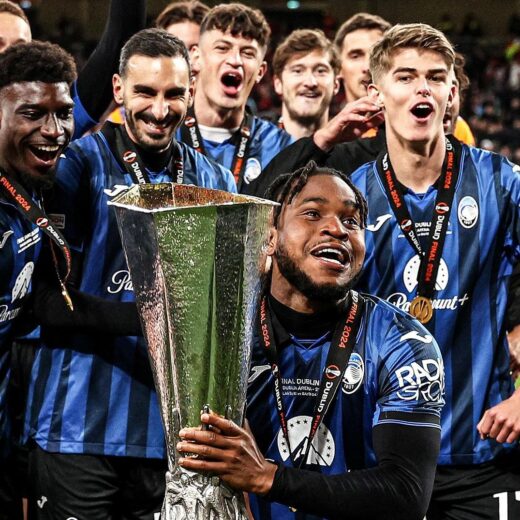
Akwuegbu: ‘Lookman Belongs In Real Madrid Or Barcelona, Must Ignore Gasperini’s Criticism’
Webby - February 23, 2025Ben Akwuegbu, a former Super Eagles forward, has told Completesports.com that Nigeria striker Ademola Lookman belongs in top European clubs…
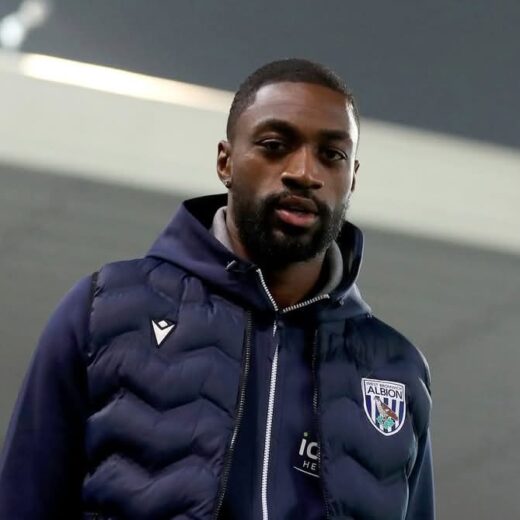
Semi Ajayi Suffers Another Injury
Webby - February 23, 2025Nigeria defender Semi Ajayi could be set for another spell on the sidelines after sustaining what appeared to be a…

Asensio Key To Aston Villa Win Over Chelsea –Emery
Webby - February 23, 2025Aston Villa boss Unai Emery has praised Marco Asensio for scoring the winning goal against Chelsea in Saturday’s Premier League.Recall…





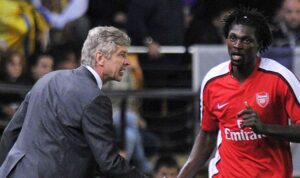






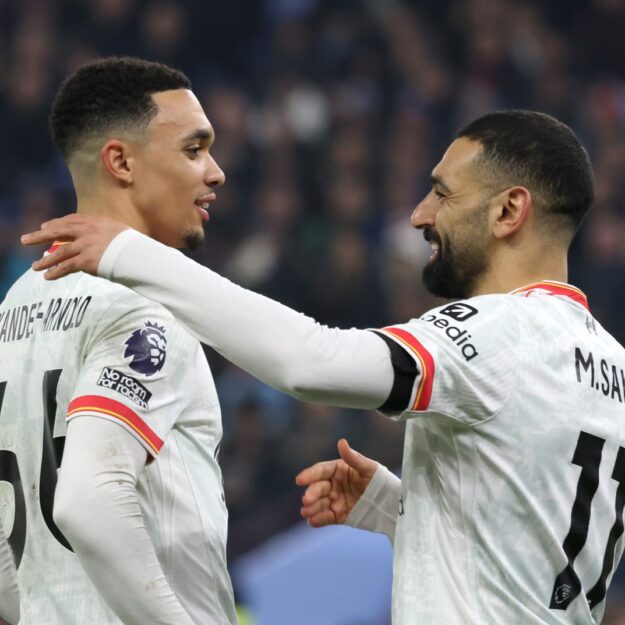
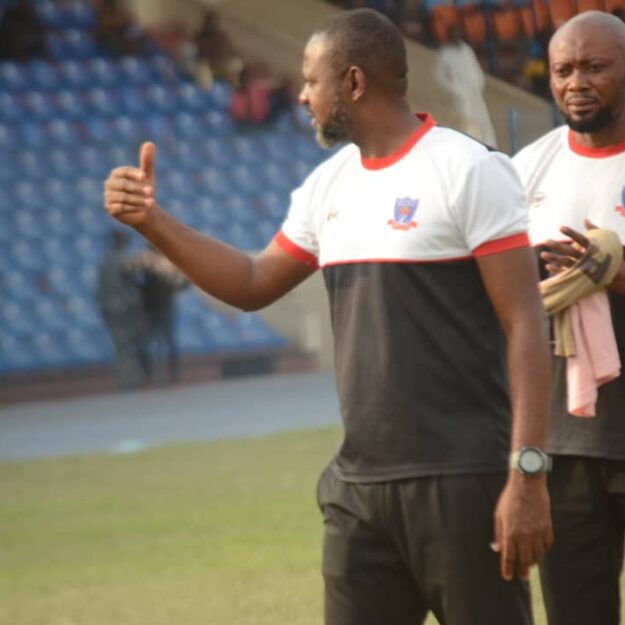
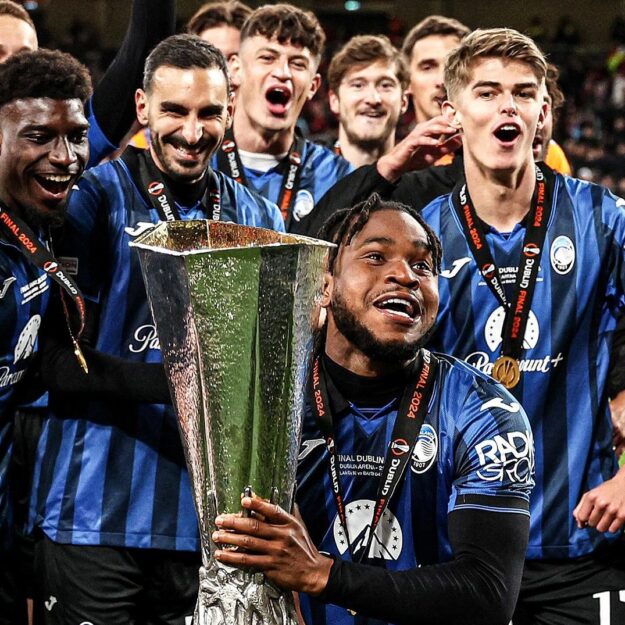
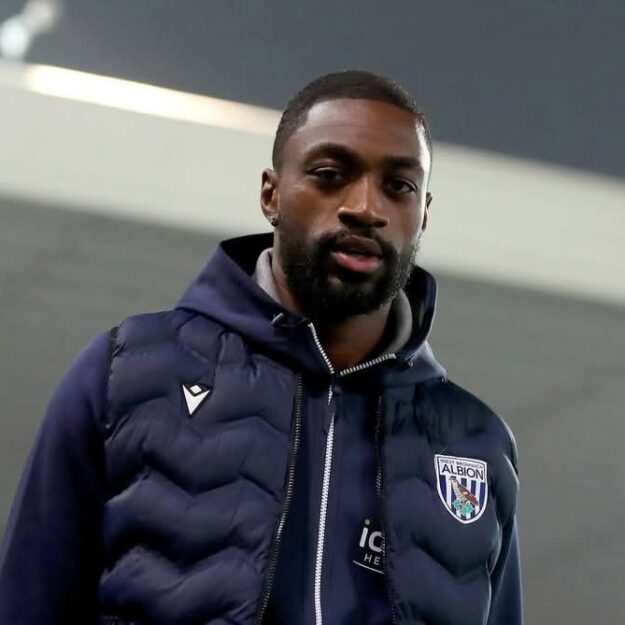
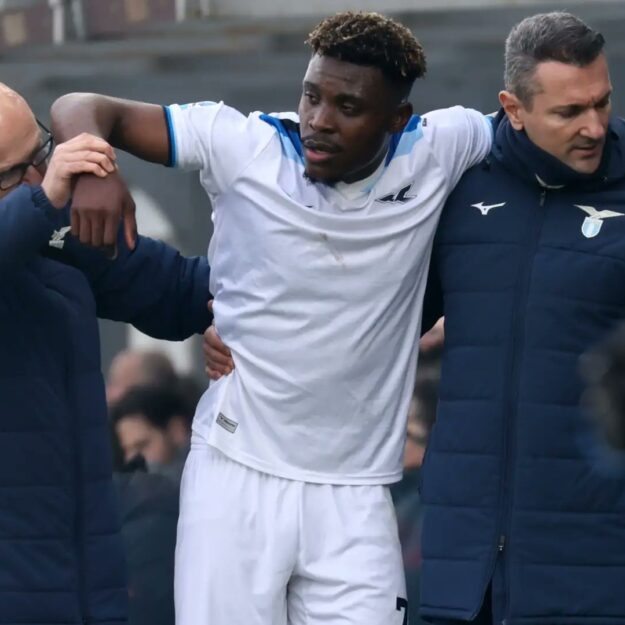
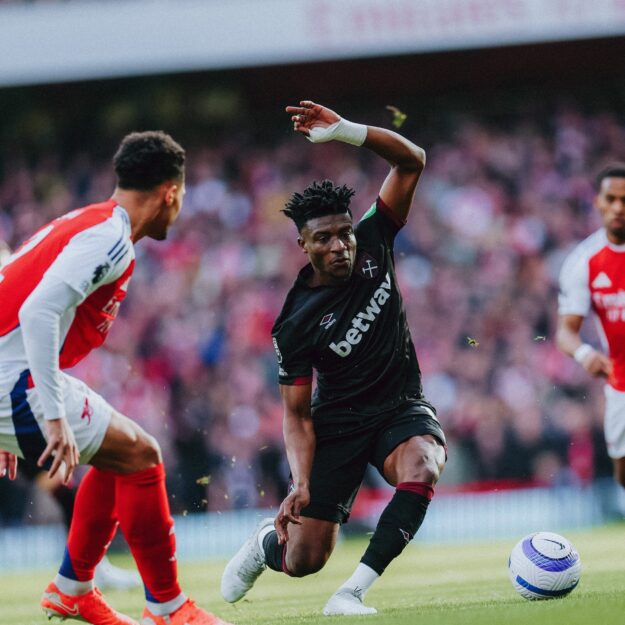

![American Pastor, David Wilson Seen Eating The Box Of Woman Who Isn’t His Wife [Video]](https://onlinenigeria.com/wp-content/uploads/2019/10/american-pastor-david-wilson-seen-eating-the-box-of-woman-who-isnt-his-wife-video-150x150.jpg)





